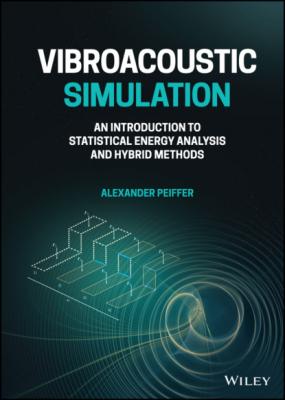Vibroacoustic Simulation. Alexander Peiffer
Читать онлайн.| Название | Vibroacoustic Simulation |
|---|---|
| Автор произведения | Alexander Peiffer |
| Жанр | Отраслевые издания |
| Серия | |
| Издательство | Отраслевые издания |
| Год выпуска | 0 |
| isbn | 9781119849865 |
Converting this into the frequency domain gives:
This is a very important result: every transfer function (also using deterministic signals) can be determined by the ratio of the cross spectrum to auto spectrum.
In principle this can also be done by using the Fourier transform (1.173), using time-limited excitation and dividing output and input FT, but the cross spectral variant is much more robust against measurement noise.
1.7 Multiple-input–multiple-output Systems
Mechanical set-ups with multiple degrees of freedom are multiple-input–multiple-output (MIMO) systems. The frequency response is determined by matrix inversion or solution of the matrix as shown in Equation (1.83)
In a more general form a MIMO system is defined as a system with N input signals fn(t) and M output signals gm(t).
Figure 1.24 Multiple-input–multiple-output (MIMO) system. Source: Alexander Peiffer.
The linear system function is described by M × N functions Hmn(ω) in frequency domain or hmn(τ) in time domain. The response of the mth output channel in time domain is given by
In the frequency domain, in the response at output m the convolution is replaced by multiplication
Both equations can be written in matrix form. The frequency domain matrix reads as
or in short form
The force excitation and displacement response matrix [H(ω)] corresponds to the inverse dynamic stiffness matrix of Equation (1.83).
1.7.1 Multiple Random Inputs
The contemplations in section 1.6.3 dealt with a single random input of one system. The cross spectrum
